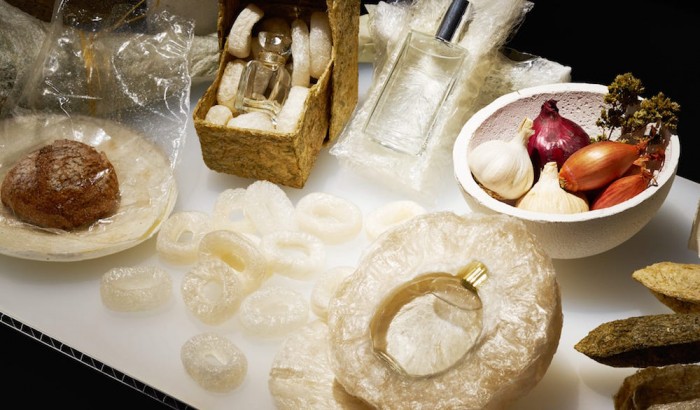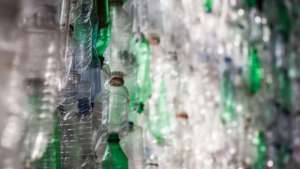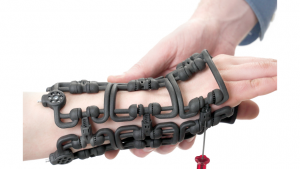From the Series

Japanese design collective AMAM recently walked away with the Grand Prix prize at this year’s Lexus Design Award for their environmentally friendly packaging project, Agar Plasticity. The collective, which is made up of designers Kosuke Araki, Noriaki Maetani, and Akira Muraoka, explored how agar (a jelly-like byproduct of seaweed algae) can be used as a green alternative to plastic and other forms of packaging that are harmful to the environment.
The project was guided by British designer Max Lamb who is known for his experimental approach to material or textile design. As we’ve learnt from Ari Jansson’s algae-based water bottles, agar is a sustainable raw material that is also 100 per cent biodegradable. Agar can be sourced from any kind of algae but the AMAM team specifically used red seaweed algae because it can be easily grown and reproduced.
Non-biodegradable packaging like plastic is one of the most infrequently recycled forms of waste. It's usually piled in landfills that pollute the environment, our ecosystems, and our health.
When commenting on their project, the Japanese designers said: ”We want to completely replace plastic products, but in the timeframe we had – we couldn't really industrialise the material.” They hope that the competition gives their concept exposure and subsequently helps them further the mass production of the packaging.







